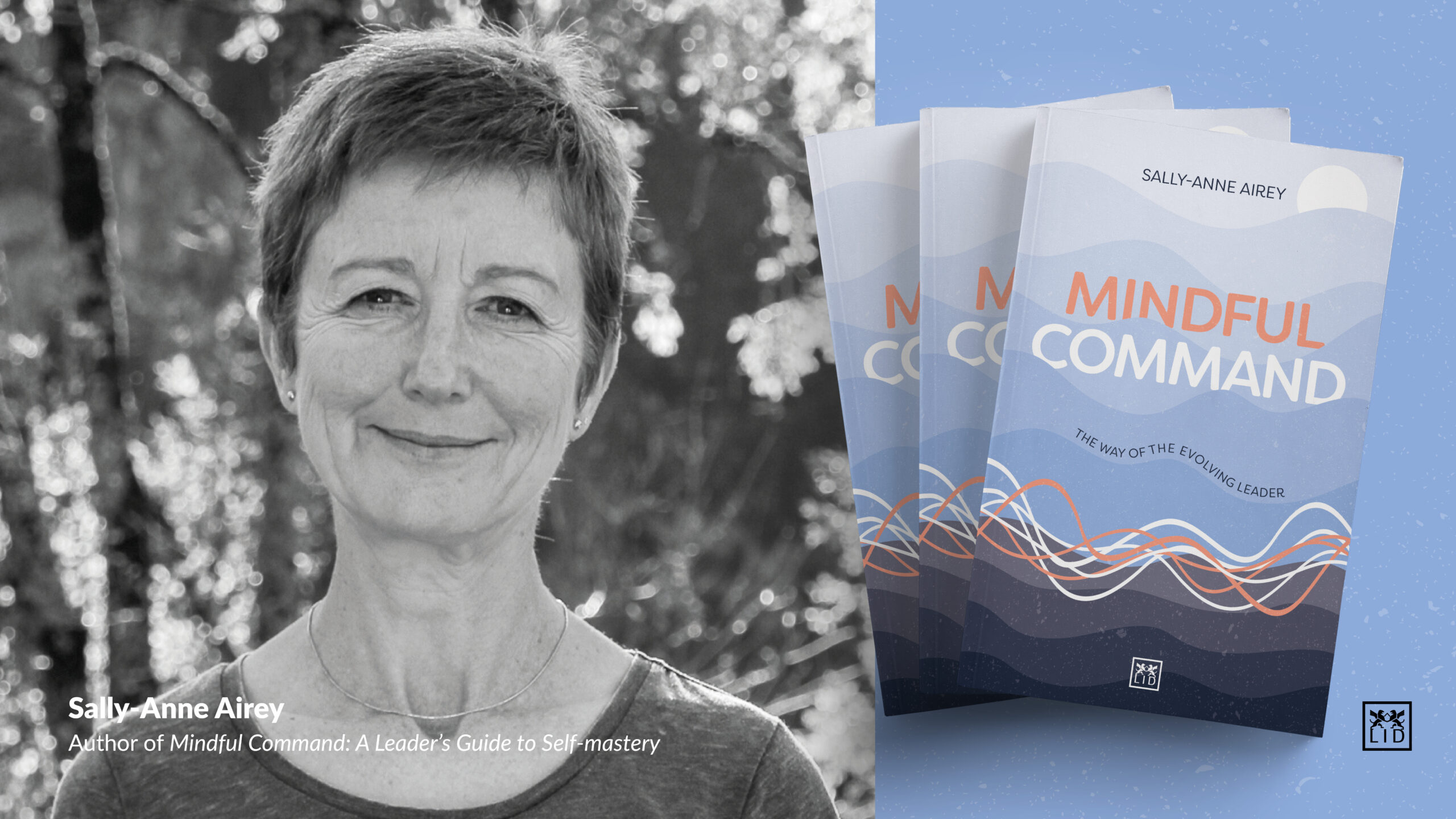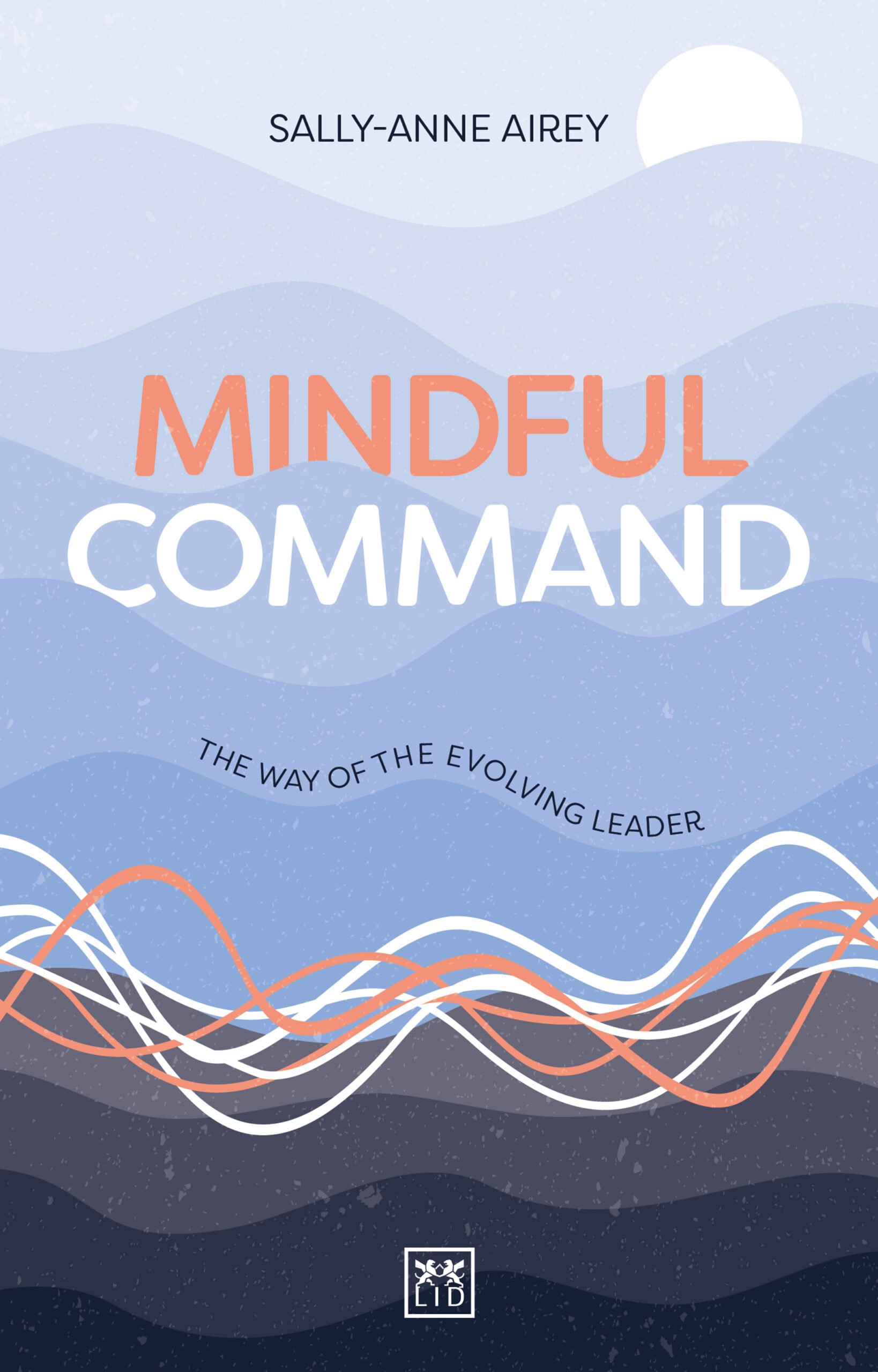|
What’s the Difference between Good and Great Leadership? with Sally-Anne Airey
What’s the Difference between Good and Great Leadership?

By Guest Contributor Sally-Anne Airey
The difference between good and great leadership, says former Royal Navy Commander and leadership coach Sally-Anne Airey, depends on being clear about the difference you want to make.
Leadership is an inside out affair. Our capacity to be a good or even great leader grows as we grow; and gets stuck as we get stuck. The way to really skilful leadership is long and winding, with many twists and turns.
In all the leaders I’ve known, what distinguishes the good from the great is the capacity to quieten all the voices in their heads and speak only from their own true voice. They align who they are with how they lead. When they speak, people listen.
What also sets great leaders apart is their ability to see things as they are, be clear about what matters, hold their ground, speak their truth, and have the courage to do the right thing.
In other words, great leaders – for example, Nelson Mandela, Mahatma Gandhi, or Martin Luther King Jr. – speak and act on purpose. They are wholly committed to the difference they want to make in the world.
They are also human, like us. They have their struggles too.
Those of us who’ve watched Ted Lasso – the fictional American football coach – in action on our screens have seen his struggles playing out before our eyes. While the character may be fictitious, his values mirror those of many other great sports coaches – like the legendary John Wooden or Valorie Kondos Field – who win not by seeking to win, but by seeing their players as people they want to get to know.
They purposefully see the best in people, so that their best is what they become. They live and breathe their purpose so authentically that it attracts the people who want to share it. They nurture the spirit of human connection that enables people to flourish.
° ° ° ° ° °
Our purpose goes to the heart of what matters to us. When we get clear on our purpose, it weaves a thread of meaning through our life that makes sense of it all.
Good leaders understand this. Great leaders dig deep enough to make it happen.
Take Jane. A senior leader in a multinational corporation, there were tensions in the leadership team she’d recently joined. They were under huge cost pressure and had to identify financial savings. Toxic behaviours – underhand actions, unconstructive comments – were on the rise. Some leaders had publicly voiced negative insinuations about their colleagues’ performance, including hers, which had thrown her onto the back foot. She wondered how to respond effectively.
“Is there any truth in their comments?” I asked her. All of them, she said, contained partial truths, taken out of context, and intended to undermine.
I asked her what she was afraid of. “My biggest fear,” she said, “is that this team becomes a major energy drainer. What annoys me most is that we’re wasting our time.”
“Wasting our time?” I queried.
After a long pause, she clarified “Because we’re no longer working for the greater good.”
Ah.
Her colleagues’ behaviours had touched Jane’s core values. Honesty, integrity, and trust mattered to her. She was feeling all this at a deeply personal level.
I invited her to pause, take a step back, and look at the whole context. What was happening? What were the key contributing factors?
Looking at each team member individually, what was going on for them? What did she imagine might be their fears?
Gradually she saw they were all struggling. There were big challenges, immense uncertainty, and no clear way ahead. Instead of working through it together, some were attempting to seize control in unhealthy ways.
Once Jane saw this, her feelings towards her colleagues shifted from mistrust to compassion, from helpless to helpful – cautiously at first, then gradually more openly. This fortified her resolve to act well.
She took a long hard look at her own behaviours and decided to role model those she wanted to see more of in the leadership team: respect, active listening, collaboration, trust. She also committed to setting clear boundaries, stating her needs, and holding her ground.
Jane may have wished the context were otherwise, but she worked with it as it was. She dug deep into her own inner resources and focused on what she could control: herself. This empowered her and gave her courage to act purposefully in service of the greater good of her team and their work.
Jane got to the heart of what mattered to her and acted on it in the interests of something bigger than herself. She went from good to great.
° ° ° ° ° °
As a leader, your key role is to generate the conditions for clear, purposeful work. This starts with you: being clear about what matters to you, understanding what matters to the people you lead and being alert to the twists and turns of your collective context.
Finding your own purpose is an inward journey, and the answer lies somewhere between your head, heart, and gut.
Every year for the past five years I’ve invited a group of eight leaders on my Evolving Leadership programme to ask themselves three simple questions:
Who am I?
How do I relate to the world?
How do I want to evolve as a leader?
Supported by the foundational framework of Mindful Command (as described in my book of the same name), their answers evolve over the course of a 9-month enquiry into who they are as leaders and how they align who they are with how they lead.
They learn simple tools and techniques for balancing their awareness, clarifying their purpose, stabilising their centre and acting compassionately, so that they can show up in any circumstance as their clear, calm, centred self, confident of doing the right thing.
As a group, they meet regularly online and twice in person in the French Alps where I live. And as they share and learn together, they discover that there’s nothing in their individual experience that their fellow leaders haven’t already experienced in their own lives.
Parting as trusted friends, each leader’s personal learning happens in the relational space between them all. It’s unlike anything they’ve known before.
As they reconnect with who they are, they uncover the seed of their own great leadership. It was always there, all along, waiting for them to be ready to listen.
ABOUT THE AUTHOR
Suggested Reading
 Airey’s career in the Royal Navy spanned 23 years and during this time she observed all kinds of leadership, good and bad. Observing these leaders and the outcomes they achieved gave her huge insight into what works. In Mindful Command she presents her learnings and arguments as an international business leader, leadership coach and mindfulness teacher. Her reflections on what constitutes the essence of real leadership skill are current and valuable, and the book presents a simple, all-encompassing framework that enables leaders everywhere to grow.
Airey’s career in the Royal Navy spanned 23 years and during this time she observed all kinds of leadership, good and bad. Observing these leaders and the outcomes they achieved gave her huge insight into what works. In Mindful Command she presents her learnings and arguments as an international business leader, leadership coach and mindfulness teacher. Her reflections on what constitutes the essence of real leadership skill are current and valuable, and the book presents a simple, all-encompassing framework that enables leaders everywhere to grow.

